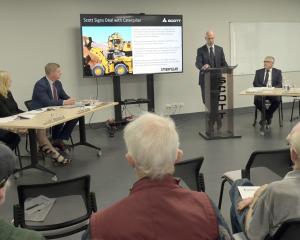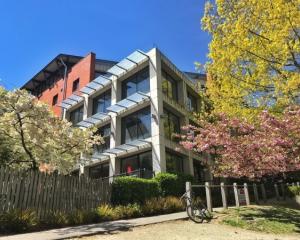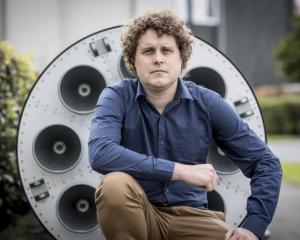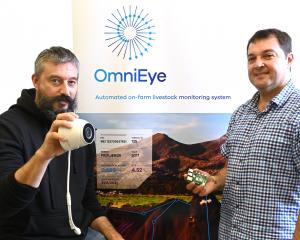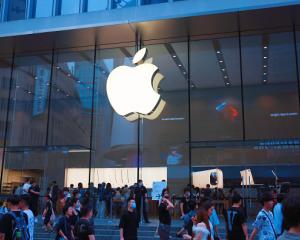Businesses are being urged to upgrade to ultra-fast broadband or risk being left behind.
A survey released yesterday by MYOB showed Otago-Southland had the lowest number of businesses connected to UFB at just 12%.
The region includes Dunedin, the home of GigaCity and the fastest broadband speeds in the country.
The most connected city was Auckland on 28%.
Christchurch remained significantly behind at 18%.
Bay of Plenty had the largest number of businesses using a UFB service in the regions with 27%.
While 60% of SME operators believed a UFB connection would have a positive benefit for their business, just 22% of local businesses reported having UFB access.
Wicked Networks owner Stewart Fleming said the survey contained some interesting numbers, somewhat at odds with what was seen so far in Dunedin.
The uptake in Dunedin had been ahead of the Chorus national average and was about to take a significant jump.
The uptake in UFB exceeded expectations.
Chorus did not specifically break out business UFB connection numbers per region.
The most recent Chorus figures indicated an overall uptake in Dunedin of 15% in August this year and a jump to 22% was expected in the third quarter.
Statistics New Zealand published figures showing 25% of businesses across New Zealand were connected to UFB.
The target for Crown Fibre Holdings was to have 30% uptake by the end of the roll-out in 2019.
With the Chorus accelerated build in Dunedin already happening, significant increases in the uptake rate by Dunedin businesses were expected in coming months, Dr Fleming said.
''It's crucially important for all businesses to understand the benefits UFB brings in terms of increased productivity, less time wasted, fewer support calls and improved efficiency of existing operations - along with the upside of discovering new ways to do business.
''There's a real danger businesses may find themselves being left behind if they settle for current DSL services or if they are not willing or able to upgrade their office set-up to take best advantage of better internet.
''The message is fairly clear from the survey: people are not satisfied with the status quo and yet there's a viable alternative available now.''
The low level of satisfaction with the current non-UFB internet performance and reliability would seem to be a great opportunity, rather than a weakness, he said.
Reliability and performance with business UFB connections had been excellent, with very few failures and none of the congestion issues tending to affect copper connections.
However, there was a sense of ''significant inertia'' in the market, a reluctance to change providers and people waiting for their current ISP to come along and offer a UFB connection.
Not all ISPs were being proactive at presenting new connections to businesses and long contracts of 24 months were still common, making it harder for a business to make a decision to change provider or upgrade with their current provider.
Regarding costs, most business plans had settled at about $120 to $140 a month, Dr Fleming said.
''For the performance available, this is an excellent price point, particularly in comparison with more expensive `managed services' offered on previous fibre infrastructure.
"With gigabit UFB as well, we're at the end of the constant upgrade path. Now, we have internet to the premises that is essentially unlimited.''
Dunedin South MP and Labour ICT spokeswoman Clare Curran said the survey results placed a different light on the glowing reports a few weeks ago by Chorus and the city on progress in connecting Dunedin households and businesses to the gigabit.
Almost a year after winning the gigatown connection, Dunedin lagged considerably behind in business connections.
The reasons for this were likely to be poor communication with business on the benefits of connecting to UFB, lack of co-ordination of gigatown since winning the competition and long delays and barriers to actually getting connected, putting many businesses and households off the process, she said.
''I've been informed by a large telco that getting connected to UFB requires between four and 14 phone calls to your provider and Chorus and having to take time off work on multiple occasions to have contractors to your home.
''It's not a straightforward process and I deal with cases most days coming through my office from around the country from people who are trying to get their homes and businesses connected.''
The low number of businesses connected in Otago defied logic, given it should be powering ahead a year after winning gigatown, Ms Curran said.
MYOB New Zealand chief executive Tim Reed said keeping pace with rapidly changing technology was the new normal for businesses which stood to gain considerable benefits from the latest innovations.
While it could take some effort to keep pace with emerging and evolving technologies, especially if they were not yet commonplace in a particular sector, it was worth the investment.
The benefits included improved productivity and efficiency, greater ability to reach and interact with new customers and having access to real time information to support better decision-making, he said.


